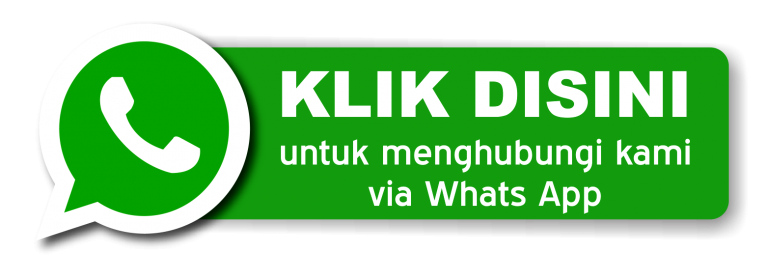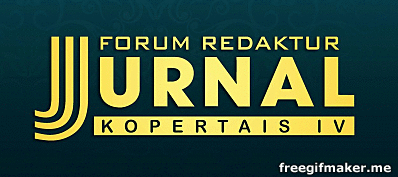The Effectiveness of the Discovery Learning Model on the Quality of Islamic Cultural History Learning

DOI:
https://doi.org/10.32665/alulya.v9i2.3365Keywords:
Effectiveness, History of Islamic Culture, Discovery modelAbstract
Learning the history of Islamic culture can train students to think chronologically and foster nationalism in planning the future based on past experiences. This research aims to test the effectiveness of the discovery learning model in improving the quality of Islamic Cultural History (SKI) learning and determine learning models that can produce quality SKI learning. The research uses a quantitative approach with a quasi-experimental method, involving an experimental class that applies the discovery learning model and a control class that uses the conventional lecture method. Data sources were taken from the pretest and post-test in both classes. The research was conducted at Madrasah Aliyah Ibadul Ghofur with a sample of class 10 MIA 1 students as the experimental class and class 10 MIA 2 as the control class. The research showed that the discovery learning model effectively improved the quality of SKI learning, with the average post-test score for the experimental class (86.91) being higher than the control class (72.50). The N-gain score measurement shows that the experimental class is in the practical category (70.49), while the control class is ineffective category (35.10). This research concludes that the discovery learning model has also been proven to increase student activity and motivation in learning compared to conventional methods. In conclusion, there is a significant difference in the quality of SKI learning between the control and experimental classes, where the discovery learning method is more effective in improving the quality of learning.
Downloads
References
Addaeroby, M. F., & Febriani, E. (2024). Application Of Skinner's Behaviorist Learning Theory In Learning Arabic Speaking Proficiency. Journal of Arabic, 1(1), 33–42.
Annisa, N. F. (2021). The Role of Teachers in the Offline Learning Process in Early Childhood Social-Emotional Development at Kindergarten Islam Perkemas Bandar Lampung. Uin Raden Intan Lampung.
Anugraheni, I. (2017). Analysis of factors that affect the learning process of elementary school teachers. Manage: Journal of Educational Management, 4(2), 205. Https://Doi.Org/10.24246/J.Jk.2017.V4.I2.P205-212
Arwani, R., & Hardini, A. T. A. (2023). The effectiveness of the Discovery Learning and Inquiry Learning learning models on the critical thinking of grade V students in science subjects. Innovative: Journal Of Social Science Research, 3(3), 1186–1195.
Asmani, J. M. (2016). Effective Cooperative Learning Tips: Active, creative, and not dull learning. Diva Press.
Bere, G. B. (2023). Increasing motivation and achievement in learning accounting through the Discovery Learning model in students in class XI ak. 1 Smk St. Willibrodus Betun for the 2022/2023 Academic Year. Proceedings of the National Seminar on Education, Language, Literature, Arts, and Culture, 2(1), 227–235.
Daga, A. T. (2021). The Meaning of Independent Learning and Strengthening the Role of Teachers in Elementary Schools. Journal of Educatio Fkip Unma, 7(3), 1075–1090.
Dewi, P. Y. A., Kusumawati, N., Pratiwi, E. N., Sukiastini, I. G. A. N. K., Arifin, M. M., Nisa, R., Widyasanti, N. P., & Kusumawati, P. R. D. (2021). Theory and Application of Science Learning for Elementary / Mi. Muhammad Zaini Publisher Foundation.
Disvia, F. M. (2024). Implementing Pancasila Student Profile in Student Character Formation through History Learning Class X of SMA Negeri 11 Muaro Jambi. University of Jambi.
Fahmi, A. (2020). Library Management and Quality of Education in Schools. Journal of Paedagogy, 3(1), 22–29.
Fitri, R. A., Adnan, F., & Irdamurni, I. (2021). The Influence of the Quantum Teaching Model on Student Interest and Learning Outcomes in Elementary School. Journal of Basicedu, 5(1), 88–101.
Gani, R. H. A., Ernawati, T., & Wijaya, H. (2024). The Effect of Simulation-Based Learning on the Development of Students' Creativity in Drama Learning in Grade VIII Skilled Islamic Junior High School Nwdi Pancor Kopong. Widya Accarya, 15(1), 8–19.
Garcia-Molsosa, A., Orengo, H. A., & Petrie, C. A. (2023). Reconstructing Long-Term Settlement Histories On Complex Alluvial Floodplains By Integrating Historical Map Analysis And Remote-Sensing: An Archaeological Analysis Of The Landscape Of The Indus River Basin. Heritage Science, 11(1), 1–28. Https://Doi.Org/10.1186/S40494-023-00985-6
Grasela, J. N., Hala, Y., & Sari, I. S. (2023). The effectiveness of the Discovery Learning model to improve student learning outcomes in biology learning in grade 11. Journal of Thought and Learning Development, 5(3), 676–683.
Guan, S., & Wang, G. (2024). Drug Discovery And Development In The Era Of Artificial Intelligence: From Machine Learning To Large Language Models. Artificial Intelligence Chemistry, 2(1), 100070. Https://Doi.Org/10.1016/J.Aichem.2024.100070
Hake, R. R. (1999). Analysing Change/Gain Score. Dept. Of Physics, Indiana University.
Halizah, P. D. (2023). Efforts to Foster Student Learning Motivation through the Edutainment Method in Ski Subjects in Class VII Mtsn 8 Magetan. Iain Ponorogo.
Handayani, L. T. (2023). Textbook for the Implementation of Quantitative Data Analysis Techniques (Health Research). Pt. Scifintech Andrew Wijaya.
Hanifah, M., & Indarini, E. (2021). The effectiveness of the Discovery Learning learning model with the Problem-Based Learning model on students' problem-solving abilities in elementary schools. Journal of Basicedu, 5(4), 2571–2584.
Hasan, M., Maulidyanti, H., Tahir, M. I. T., & Arisah, N. (2022). Analysis of Students' Critical Thinking Skills through Literacy Activities. Ideas: Journal of Education, Social, and Culture, 8(2), 477–486.
Helmi, J. (2023). Application of Contextual Teaching and Learning in the Field of Aqidah Akhlak Study at Hubbulwathan Duri Junior High School. El-Darisa: Journal of Islamic Education, 1(2), 153–174.
Hendracipta, N. (2021). Elementary Learning Model Model. Multikreasi Press.
Hidayah, A. F., Triwisudaningsih, E., & Ma'arif, A. (2024). Management of the Teacher Performance Evaluation System to Improve the Quality of Education at Madrasah Diniyah Mu Allimin Zainul Hasanain Genggong Pajarakan Probolinggo. Al Ulya: Journal of Islamic Education, 9(1), 85–98.
Holloway, S. M., Xu, S., & Ma, S. (2023). Chinese And Canadian Preservice Teachers In Face-To-Face Dialogues: Situating Teaching In Cultural Practices For West-East Reciprocal Learning. Teaching And Teacher Education, p. 122, 103930. Https://Doi.Org/10.1016/J.Tate.2022.103930
Ibda, H. (2022). Elementary School Learning and Learning: Phenomena, Theory, and Implementation. Cv. Pilar Nusantara.
Irrawati, M. D., & Mukaramah, M. (2024). Implementation of multiple linear regression method to overcome classical assumption violations. Accounting, Finance, and Management Studies, 3(2), 83–94.
Jaya, A., & Warti, R. (2022). Educational Statistics: Theory and Applications of Spss. Nem Publisher.
Juhri, S. (2020). Application of the Discovery Learning Model to Improve the Learning Outcomes of Grade IX Students in Science Learning. Bio Educatio:(The Journal Of Science And Biology Education), 5(2).
Kariadinata, R. (2011). Educational Research Statistics is equipped with data processing with the SPSS program. Bandung: Insan Mandiri.
Khoiriyah, S., Noor, A. M., & Ibrahim, A. M. (2024). Dynamics Of Religious Thought In Pesantrens In Indonesia: Between Radicalism, Moderation, And Liberalism. Al Ulya: Journal of Islamic Education, 9(1), 99–113.
Lestari, I. P., Amin, S., & Wekke, I. S. (2021). Model of Prevention of Adolescent Delinquency with Islamic Religious Education. Publisher Adab.
Lestari, I., & Pratama, M. H. (2020). The use of ICT as a learning medium and learning resource by ICT teachers. Education: Journal of Informatics Education, 4(2), 95–102.
Manca, S., Raffaghelli, J. E., & Sangrà, A. (2023). A Learning Ecology-Based Approach For Enhancing Digital Holocaust Memory In European Cultural Heritage Education. Heliyon, 9(9). Https://Doi.Org/10.1016/J.Heliyon.2023.E19286
Muhajir, M., Zuhri, S., Basri, H., & Suhartini, A. (2024). The essence of the Islamic education curriculum in the modern era. Al Ulya: Journal of Islamic Education, 9(1), 16–38.
Munawir, M., Syakira, H., & Fransiska, S. A. (2024). The Role of Islamic Cultural History Teachers in the Formation of Student Morals. Journal of Basicedu, 8(2), 1131–1139.
Nedovic, S., Fleer, M., & Rai, P. (2024). Parent Pedagogical Positioning To Create Conditions For Preschooler Stem Learning Using A Conceptual Playworld Approach. Learning, Culture And Social Interaction, 48(May), 100853. Https://Doi.Org/10.1016/J.Lcsi.2024.100853
Novitasari, N. L. G. (2017). The Influence of Corporate Governance and Fundamental Factors on Stock Returns in Manufacturing Companies Listed on the Indonesia Stock Exchange. Krisna: Accounting Research Review, 9(1), 36–49.
Nugroho, A. S., & Haritanto, W. (2022). Quantitative Research Methods with Statistical Approach: (Theory, Implementation & Practice with SPSS). Publisher Andi.
Nur, D. A. S. (2022). The Effect of the Application of the Word Square Learning Model and Image Visual Media in Improving Students' Understanding of the Islamic Cultural History (SKI) Class XI in Man 2 Kudus for the 2021/2022 Academic Year. Iain Kudus.
Nurdiyanto, N. (2024). Implementing the Character Education Model through Character Friday in the Development of Religious Attitudes of Muhammadiyah 4 High School Students in Bandung City. Uin Sunan Gunung Djati Bandung.
Nurdiyanto, N., Bahar, F. A., Kurahman, O. T., & Suhartini, A. (2024). History Of Islamic Education In Indonesia And Its Relevance To The Modern Era. Edunesia: Scientific Journal of Education, 5(2), 848–867.
Pertiwi, A. D., Nurfatimah, S. A., & Hasna, S. (2022). Implementing a student-centered learning method towards the transition period of the independent curriculum. Tambusai Education Journal, 6(2), 8839–8848.
Purwati, S. W. (2022). Problem-Based Learning Learning Method in Improving 21st Century Skills of Junior High School Students 1 Kedungpring Lamongan. Asanka: Journal of Social Science And Education, 3(2), 155–176.
Rizqiyah, A., Fahmi, M., & Chovifah, A. (2024). Progressivism and Reconstruction in the Perspective of Islamic Education. Al Ulya: Journal of Islamic Education, 9(1), 1–15.
Salahuddin, N., Moet, A., Hiltner, A., & Baer, E. (2002). Nanoscale Highly Filled Epoxy Nanocomposite. European Polymer Journal, 38(7), 1477–1482.
Salsabila, Y. R., & Achadi, M. W. (2024). Analysis of the Application of the Independent Curriculum in the Subject of Islamic Cultural History (SKI) at Mi Salafiyah Tanjungsari. Al Ulya: Journal of Islamic Education, 9(1), 65–84.
Schweder, S., & Raufelder, D. (2024). Does Changing Learning Environments Affect Student Motivation? Learning And Instruction, 89(August 2023), 101829. Https://Doi.Org/10.1016/J.Learninstruc.2023.101829
Septiyowati, T., & Prasetyo, T. (2021). The effectiveness of problem-based learning and discovery learning models on the critical thinking skills of elementary school students. Journal of Basicedu, 5(3), 1231–1240.
Setiyowati, S., & Sari, A. (2017). The Influence of Corporate Governance and Financial Performance on Dividend Policy in Manufacturing Companies Listed on the Indonesia Stock Exchange in 2014-2015. Journal of Action (Accounting and Information Systems), 2(1).
Sihotang, H. (2023). Quantitative Research Methods. Uki Press.
Smith, P. (2018). Learning To Know, Be, Do, And Live Together With In The Cross-Cultural Experiences Of Immigrant Teacher Educators. Teaching And Teacher Education, pp. 69, 263–274. Https://Doi.Org/10.1016/J.Tate.2017.10.018
Sugrah, N. (2019). Implementation of Constructivism Learning Theory in Science Learning. Humanities, Scientific Studies of General Courses, 19(2), 121–138.
Suliyanto, S. E., & Mm, S. (2017). Quantitative Research Methods.
Surakhmad, W. (2000). Introduction To Basic Scientific Research Engineering Methods. Bandung: Tarsito.
Syah, M. (2001). Educational Psychology with a New Approach.
Uno, H. B., & Umar, M. K. (2023). Managing Intelligence in Learning: An Intelligence-Based Learning Concept. Bumi Aksara.
Wahyuni, D. T., & Astuti, S. (2021). Meta-Analysis of the Effectiveness of Discovery Learning and Inquiry Learning Models on Students' Critical Thinking Skills in Thematic Learning in Grade V Elementary School. Journal of Teacher Studies and Learning, 4(2), 421–428.
Wang, J., Huang, W., & Biljecki, F. (2024). Learning Visual Features From Figure-Ground Maps For Urban Morphology Discovery. Computers, Environment And Urban Systems, 109(August 2022), 102076. Https://Doi.Org/10.1016/J.Compenvurbsys.2024.102076
Wang, W., Li, J., Jiang, J., Wang, B., Wang, Q., Gao, E., & Yue, T. (2024). Autonomous Data Association And Intelligent Information Discovery Based On Multimodal Fusion Technology. Symmetry, 16(1). Https://Doi.Org/10.3390/Sym16010081
Wh, E. H., Anisa, L. N., Meilani, A. R., Munasyifa, A., Sari, L. N., & Bashoriyah, R. (2023). Effective classroom management in indoor classrooms using Discovery Learning. Biofair, 128–154.
Wibowo, H. (2020). Introduction to learning theories and learning models. Puri Cipta Media.
Wright, L., & Lundy, M. (2014). Perspectives Of Cultural Competency From An International Service Learning Project. Journal Of The Academy Of Nutrition And Dietetics, 114(7), 996–997. Https://Doi.Org/10.1016/J.Jand.2014.02.028
Downloads
Published
Issue
Section
License
Copyright (c) 2024 Daldiri Daldiri, Solihin Susanto, Rina Haryanah, Husni Thoyyar

This work is licensed under a Creative Commons Attribution 4.0 International License.
 PDF Download: 208
PDF Download: 208












